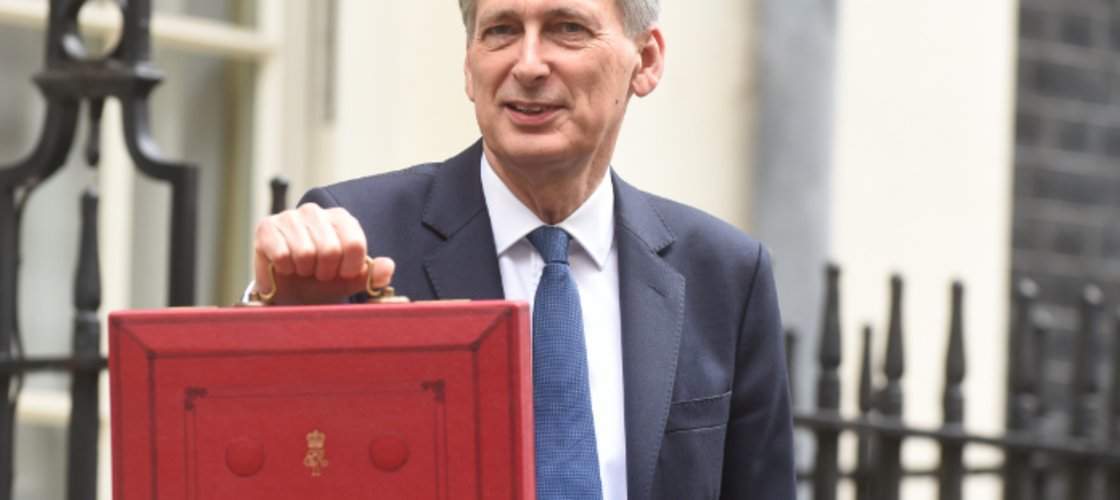
Chancellor Philip Hammond has delivered his final Spring Budget and set out a brighter outlook for the economy in the short term.
Hammond delivered as many jokes as economic announcements today but here are the big takeaways.
1. Sugar, alcohol, and fags
Hammond set the sugar tax on fizzy drinks at 18p and 24p per litre for the main and higher bands — more than 5g of sugar per 100ml and more than 8g per 100ml respectively.
The proceeds will go to the Department for Education (DfE) to fund sports for children.
Vehicle excise duty for hauliers and heavy goods vehicles (HGVs) will be frozen.
From 13 March 2017, the duty rates on beer, cider, wine and spirits will increase by Retail Price Index (RPI) inflation, in line with previous forecasts.
How well do you really know your competitors?
Access the most comprehensive Company Profiles on the market, powered by GlobalData. Save hours of research. Gain competitive edge.

Thank you!
Your download email will arrive shortly
Not ready to buy yet? Download a free sample
We are confident about the unique quality of our Company Profiles. However, we want you to make the most beneficial decision for your business, so we offer a free sample that you can download by submitting the below form
By GlobalDataAs announced in the Budget 2014, duty rates on all tobacco products will increase by 2 percent above RPI inflation. This change will mean a packet of 20 cigarettes will cost 35p more and a 30g pack of hand-rolled tobacco will cost 42p more from 6pm London time on Wednesday.
The government also introduced a Minimum Excise Tax for cigarettes targeting the cheapest tobacco and promoting fiscal sustainability.
The rate will be set at £268.63 per 1,000 cigarettes and will take effect from 20 May 2017.
2. New ways to save
The Investment Guaranteed Growth Bonds will be offered by National Savings and Investments (NS&I), the state-owned savings bank in the UK.
The Investment Bond will provide a market-leading rate of 2.2 percent over a term of 3 years and will be available for 12 months from April 2017.
The Bond will be open to those aged 16 and over, subject to a minimum investment limit of £100 and a maximum investment limit of £3,000.
Savers must lock in their money for the total duration of three years.
Hammond also announced a new Lifetime Individual Savings Account (LISA) for those aged between 18 and 40.
They can save up to £4,000 a year, and the government will add a 25 percent bonus if the money is used to buy a home or as a pension from the age of 60.
3. Dividend tax
Company owners who pay themselves in the form of dividends rather than salary will see their tax-free allowance slashed by more than half from £5,000 to £2,000.
The tax-free dividend allowance — which was only introduced last year — will be reduced from April 2018 onwards.
Half the people affected are director shareholders of private companies and the other half are investors, said Hammond.
The greatest beneficiaries of the perk are either director-shareholders or wealthy savers with share portfolios worth more than £50,000, he added.
4. Income tax
The personal allowance – the amount you can earn before paying income tax – will rise with the start of the new tax year from £11,000 to £11,500.
But you begin to lose your personal allowance once you start earning over £100,000. It is steadily reduced to zero once you earn £123,000 or more.
The threshold for paying higher-rate, 40 percent, tax will also rise from £43,000 currently, up to £45,000.
By 2020 the Government wants the threshold raised further, so only people earning £50,000 or more will pay higher-rate tax.
5. Overseas pension transfers
A new 25 percent tax charge will be applied to transfers of pensions to overseas schemes when the saver is not living in that country.
The charge will not apply if the individual and scheme are within the European Economic Area or if the overseas scheme is provided by the individual’s employer.
Only a “minority” of transfers will be affected, Hammond said.







